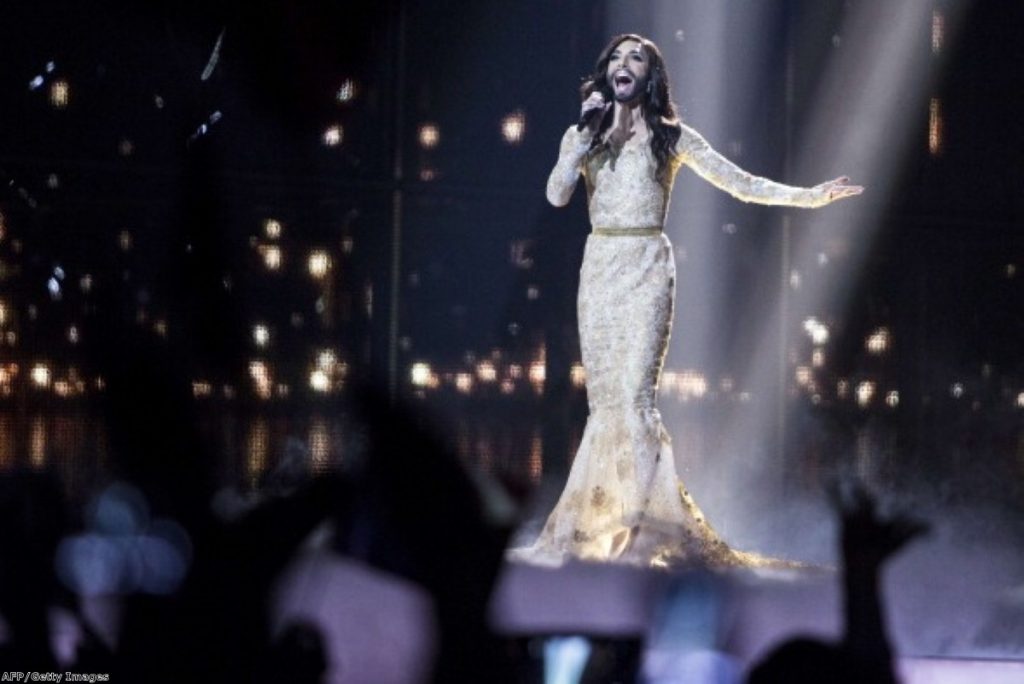Eurovision 2014: Is it Europe that’s ‘unstoppable’ – or Putin’s Russia?
This was one of the most political Eurovision Song Contests in years.
Conchita Wurst is, admittedly, an unusual symbol of liberal western values. She is really a cross-dressing gentleman named Tom who manages to combine sleek vocals with a figure-hugging dress and meticulously groomed facial hair. The bearded lady, once a circus novelty act, is now transformed into an icon of political freedom.
Wurst's enemy, and Europe's in this competition, is Vladimir Putin's Russia. It's a country whose brazen territorial expansionism into Ukraine's Crimea region has appalled Europe and the rest of the world. The hostility generated by the Crimean land grab is added to by a growing willingness by European society to challenge Russia's old-fashioned social attitudes, especially towards homosexuality.
Now, Wurst's song was pretty good – if Austria made James Bond movies, this would be a great theme. Still, it wasn't superb. In a strong year for Eurovision where there were no obvious winners. There must have been something else that pushed Wurst over the line.


You got a clue whenever Russia's twin blondes got douze points: the wave of booing from the Danish crowd was ugly for the organisers and politically very powerful. The Russian regime likes its citizens to feel they aren't very much liked by those corrupt westerners. That feeling that it was all of Russia being booed – rather than just the Kremlin – will have played right into Putin's hands last night.
On the international stage, where what matters is diplomacy and geopolitics and trade, Russia is already paying a heavy price. Translated through Eurovision's marvellously camp tinted sunglasses, that price meant losing votes. The 'block' voting which drove Terry Wogan away from the competition seemed to partially dissolve. Even countries like Georgia were happy to give the 'Queen of Europe' votes.
It's only been a few months since the Sochi Winter Olympics, which were overshadowed by gay rights protests against Russia. Now we have an LGBT star triumphing in Eurovision – who, in her brief victory speech, made her defiance clear.
"This night is dedicated to anyone who believes in a future of peace and freedom," Wurst declared. "You know who you are. We are unity and we are unstoppable."
Is she talking about all the other men in Europe who like to dress up as women? Or is the 'we' she's talking about Europe itself? Are Europe, and Europe's values, "unstoppable"?
The internationally condemned referendum in Donetsk attempting to justify a further breakup of Ukraine is now underway. The Foreign Office has just issued a statement pointing out the best way for Ukrainians to make their views known is via the presidential election taking place later this month. But will Putin accept that view?
While Russia may have lost out to Ukraine in the points stakes in Eurovision last night, the standoff between the two countries in the real world – where realpolitik and guns take the place of glitz and confetti – is far from over.









